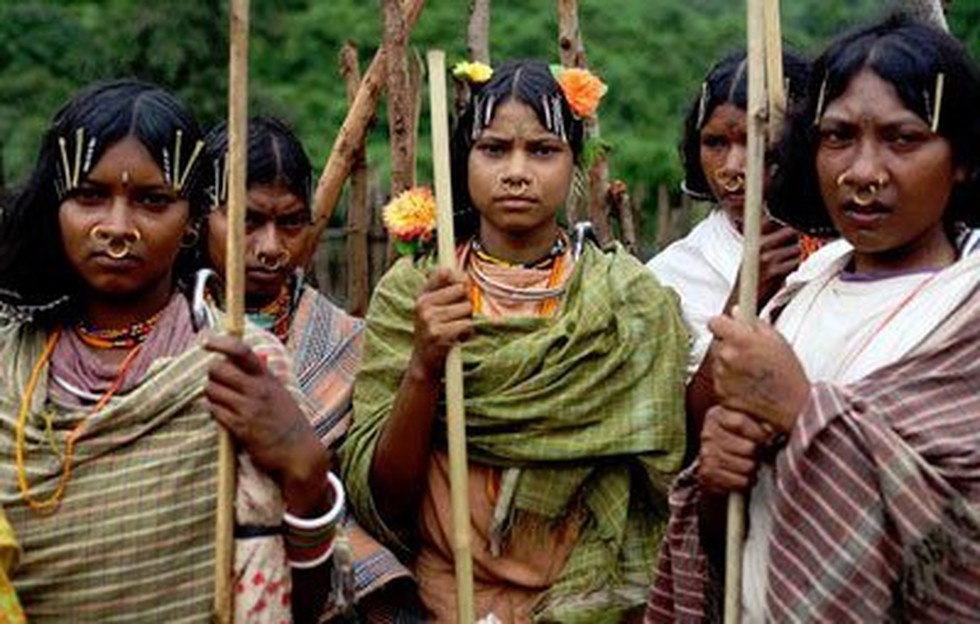New Delhi: Around 2.5 lakh tribal people belonging to 13 Particularly Vulnerable Tribal Groups (PVTGs) in Odisha will benefit from the Pradhan Mantri Janjati Adivasi Nyaya Maha Abhiyan (PM-JANMAN) that was approved by the Union Cabinet Tuesday. Union Information and Broadcasting (I&B) Minister Wednesday said that PM-JANMAN focuses on 11 critical interventions for PVTGs. Prime Minister Narendra Modi had announced the scheme on Janjatiya Gaurav Diwas in Jharkhand’s Khunti. The scheme — which aims to, among others, provide pucca houses, piped water supply and roads — got the Cabinet nod late on Tuesday.
According to sources, the mission will benefit around 2.5 lakh tribal people belonging to 13 PVTGs in Odisha – Birhor, Bondo, Didayi, Dongria-Khond, Juangs, Kharias, Kutia Kondh, Lanjia Sauras, Lodhas, Mankidias, Paudi Bhuyans, Soura and Chuktia Bhunjia. Total outlay for PM-JANMAN has been pegged at Rs 24,104 crore, of which the central share will be Rs 15,336 crore and the states will contribute Rs 8,768 crore. “Over 28,16,000 (28.16 lakh) tribal people from 220 districts in 18 states and one Union Territory will benefit from this scheme. Those tribals who have not yet benefited from Government of India schemes so far will be the beneficiaries under this scheme,” Thakur said. The beneficiaries have been identified from among 75 tribal communities with scattered habitation.
“Under the scheme, 11 main interventions have been identified on the basis of which benefits will be given to them. These include housing, all-weather roads, clean drinking water, electricity, mobile dispensaries and mobile towers…,” Thakur said. He added that assured livelihood opportunities will also be provided. The scheme targets to provide 4.90 lakh pucca homes at a cost of Rs 2.39 lakh per house, construction of 8,000 kilometres of roads at a cost of Rs 1 crore per km, piped water supply for all PVTG habitations, community water supply in 2,500 villages/habitations with a population of less than 20 households, a thousand mobile medical units with medicine cost for 10 districts at Rs 33.88 lakh per mobile medical unit, 500 hostels at a cost of Rs 2.75 crore each, and vocational and skilling centres in 60 Aspirational PVTG block at Rs 50 lakh per block.
It will also provide for the construction of 2,500 Anganwadi centres (at Rs 12 lakh each), multipurpose centres (at Rs 60 lakh each), last-mile electricity connection for 57,000 households, a 0.3 KW solar off-grid system, solar lighting in streets, and installation of mobile towers in 3,000 villages. India has a Scheduled Tribe population of 10.45 crore, according to the 2011 census.
Of the total, 75 communities in 18 states and the Union Territory of Andaman and Nicobar Islands have been categorised as PVTGs. These PVTGs continue to face vulnerability in social, economic and educational fields. The Pradhan Mantri PVTG Development Mission to improve the socioeconomic conditions of these groups was announced in the Union Budget for 2023-24.
The Union Ministry of Ayush will set up Ayush Wellness Centres, according to existing norms, and Ayush facilities will be extended to PVTG habitations through mobile medical units. The Union Ministry of Skill Development and Entrepreneurship will facilitate skill and vocational training in PVTG habitations, multipurpose centres and hostels, according to the suitable skills of these communities.
